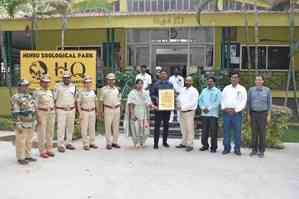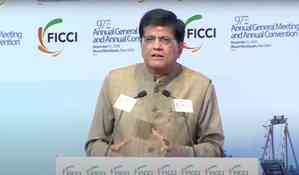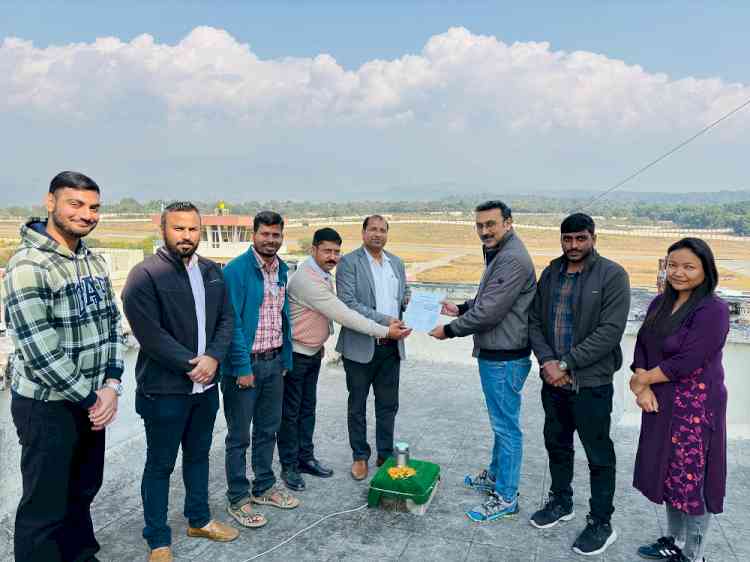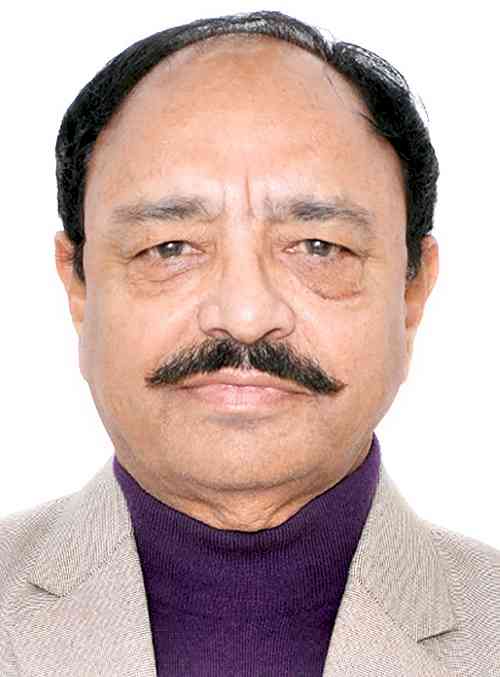Ancient healing for modern women
There are no two ways about it - Women are the centre of the creation of Mother Nature and they are at the heart of a healthy and vibrant society. Our lives not only begin in the feminine world (mother's womb) but also ends in the feminine world (Mother nature - Prakruti, Shrushti). Women have from time indefinite been the nurturers. It is in the hands of a woman that the well-being of her loved ones lies.

SUBHASH MARKANDE
New Delhi, March 8 (IANSlife) There are no two ways about it - Women are the centre of the creation of Mother Nature and they are at the heart of a healthy and vibrant society. Our lives not only begin in the feminine world (mother's womb) but also ends in the feminine world (Mother nature - Prakruti, Shrushti). Women have from time indefinite been the nurturers. It is in the hands of a woman that the well-being of her loved ones lies.
The day begins with the opening of our Netra (eyes) and placing our feet on Dharani (Mother earth). We quench our thirst, cleanse ourselves, and energize ourselves with Jala, Vari (water). We satiate and nourish our system with Annapoorna. (Ahara-food). We get information, gain knowledge and acknowledge our intelligence with Saraswati (goddess of knowledge), and Vidya (study). We make our living and make our lives conducive to bringing in a lot of growth and development in society with Lakshmi (Goddess of wealth), and Kanchana (gold). As the sun sets in the evening Sandhya, we plan to end our routine and rest ourselves in Nidra (sleep). To face the challenges and manage our lives we need Dhairya (courage), Jaya (victory), Vijaya (success) etc. Even to dedicate ourselves to the Divine we need Shraddha (faith), Vinaya (humbleness), Pushpa (flower), Pooja and Arthi (worship) and Bhakti (devotion).
All of the above forms and many more are what the Cosmos perceives as "Feminine". The woman is believed to be Shakti (The Unmatchable Power). Where there is no doubt or question with regards to equality, this aspect actually fades into the background and instead, there is the acknowledgement and acceptance of The Dynamic form; interestingly this perspective and acceptance have been the basis of life not just in every era but for time indefinite.
Ayurveda is an ancient and universal system of health and healing, that can be used beneficially in any culture, era and by anyone. The basic principles of Ayurveda guide everyone to understand their own physiological & psychological makeup in relation to the qualities of their specific environment; which in turn promotes and sustains either a state of good health or ill health. We understand that women's health is essential to a healthy society. Awareness is key-bearing this in mind and focusing on the modern woman's need to heal and empower her body, mind and spirit in what has become a very fast-moving world, through Ayurveda, we inspire them to become advocates for their own health. These Ayurveda principles can be applied by women of all ages to adapt and apply healthy principles to their daily life.
The aim being, to help women fulfil their potential as there is no doubt that the health of the woman affects the health of not just the future generation but the wellness of the entire family.
Ayurveda has a wide and extensive range of self-healing, health-promoting practices. One amongst them is a greater expression of Self- love which can start with Abhyanga ie: anointing oneself with warm, medicated oil on the entire body - (from the scalp to the soles) and massaging it into the skin with strokes that are done in one direction - away from the heart and outwards. Practicing this regularly excluding the days of menstruation provides women with many health benefits.
A daily Abhyanga practice restores the balance of the doshas and enhances well-being & longevity. Abhyanga gives a feeling of stability and warmth, nourishes the entire body, decreases the effects of ageing, imparts muscle tone and vigour to the dhatus (tissues of the body), lubricates the joints and promotes firmness to the limbs, stimulates the internal organs of the body, assists in the elimination of impurities from the body, increases stamina, calms the nerves, imparts better and deeper sleep, enhances vision, softens and smoothens the skin, wards off the wrinkles, makes hair grow lustrous, and enhances the recovery from various internal and external ailments as a whole. Just this one activity, 'Abhyanga', has the potential to transform a condition of disease at any level to ease. Ayurveda advocates practicing this in the early part of the day for 15 - 20 minutes on an empty stomach. Ideally, this should become an integral part of a woman's life. In today's modern lifestyles, if this is not possible every day, women should at least indulge themselves with an Abhyanga on the weekends.
Another fact that goes unnoticed and is underrated is the condition of women during their periods. Ancient communities used to have a practice of keeping women away from household activities during the days of their menstrual cycle. They acknowledged that a woman had been provided with a natural system of cleansing her body through her periods and that during this time she should be left stress free. Hence during the entire phase of fertility from menarche to menopause, whenever a woman was menstruating, calming practices for self-care, to relieve stress, support this natural purification of the body, and rejuvenate her inner system, women were kept away from any physical work. This supported the transformation within the woman, wherein she could use this time to focus and concentrate on herself. This was done in order to encourage an amicable disposition in women and was indeed the need of the moment. Although in its original perspective, it was never meant to be; in the modern world, this practice got twisted and interpreted as a manner of alienating the woman, denying her rights and being gender biased. Ancients seem to have got their fundamentals right, as now women are fighting for and to a certain extent have succeeded to get Menstrual leave as a norm in schools, and this is now slowly being accepted in offices & companies too. Although, why a woman has to fight for her rights is still a question.
In their multifaceted roles women not just create, love, nurture, and support as homemakers but are also the breadwinners. Therefore, adopting the above principles of Ayurveda would empower a woman to increase the quality of her life (both physically and mentally) in order to bring about transformation not just in her being, but also in Society at large. This would also be helpful and equip her better if she so chooses to bring forth and nurture a Healthy family.
(Dr Subhash Markande, Consulting Ayurveda Physician, CGH Earth Wellness)
(IANSlife can be contacted at [email protected])


 IANS
IANS 













